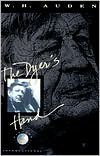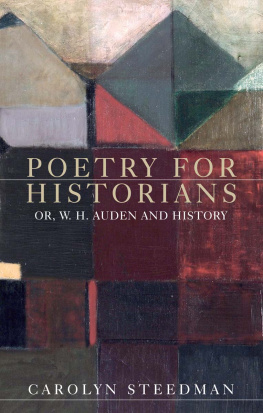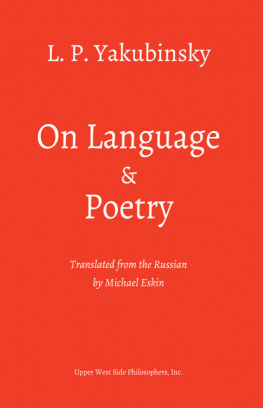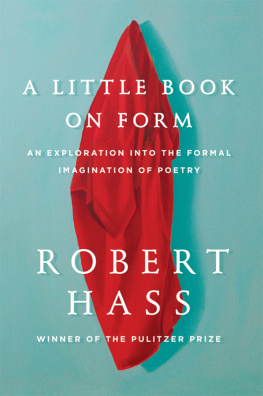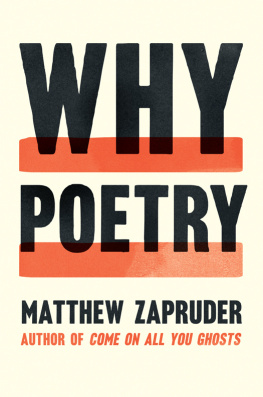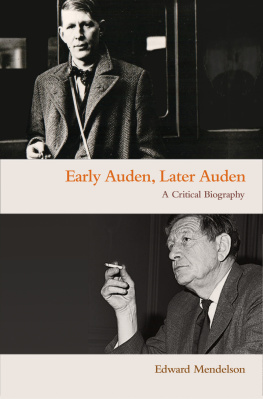PART ONE
Prologue
READING
A book is a mirror: if an ass peers into it, you cant expect an apostle to look out .
C. G. UCHTENBERG
One only reads well that which one reads with some quite personal purpose. It may he to acquire some power. It can he out of hatred for the author.
PAUL VALERY
The interests of a writer and the interests of his readers are never the same and if, on occasion, they happen to coincide, this is a lucky accident.
In relation to a writer, most readers believe in the Double Standard: they may be unfaithful to him as often as they like, but he must never, never be unfaithful to them.
To read is to translate, for no two persons experiences are the same. A bad reader is like a bad translator: he interprets literally when he ought to paraphrase and paraphrases when he ought to interpret literally. In learning to read well, scholarship, valuable as it is, is less important than instinct; some great scholars have been poor translators.
We often derive much profit from reading a book in a different way from that which its author intended but only (once childhood is over) if we know that we are doing so.
As readers, most of us, to some degree, are like those urchins who pencil mustaches on the faces of girls in advertisements.
One sign that a book has literary value is that it can be read in a number of different ways. Vice versa, the proof that pornography lias no literary value is that, if one attempts to read it in any other way than as a sexual stimulus, to read it, say, as a psychological case-history of the authors sexual fantasies, one is bored to tears.
Though a work of literature can be read in a number of ways, this number is finite and can be arranged in a hierarchical order; some readings are obviously truer than others, some doubtful, some obviously false, and some, like reading a novel backwards, absurd. That is why, for a desert island, one would choose a good dictionary rather than the greatest literary masterpiece imaginable, for, in relation to its readers, a dictionary is absolutely passive and may legitimately be read in an infinite number of ways.
We cannot read an author for the first time in the same way that we read the latest book by an established author. In a new author, we tend to see either only his virtues or only his defects and, even if we do see both, we cannot see the relation between them. In the case of an established author, if we can still read him at all, we know that we cannot enjoy the virtues we admire in him without tolerating the defects we deplore. Moreover, our judgment of an established author is never simply an aesthetic judgment. In addition to any literary merit it may have, a new book by him has a historic interest for us as the act of a person in whom we have long been interested. He is not only a poet or a novelist; he is also a character in our biography.
A poet cannot read another poet, nor a novelist another novelist, without comparing their work to his own. His judgments as he reads are of this kind: My God! My GreatGrandfather! My Uncle! My Enemy! My Brother! My imbecile Brother!
In literature, vulgarity is preferable to nullity, just as grocer's port is preferable to distilled water.
Good taste is much more a matter of discrimination than of exclusion, and when good taste feels compelled to exclude, it is with regret, not with pleasure.
Pleasure is by no means an infallible critical guide, but it is the least fallible.
A childs reading is guided by pleasure, but his pleasure is undifferentiated; he cannot distinguish, for example, between aesthetic pleasure and the pleasures of learning or daydreaming. In adolescence we realize that there are different kinds of pleasure, some of which cannot be enjoyed simultaneously, but we need help from others in defining them. Whether it be a matter of taste in food or taste in literature, the adolescent looks for a mentor in whose authority he can believe. He eats or reads what his mentor recommends and, inevitably, there are occasions when he has to deceive himself a little; he has to pretend that he enjoys olives or War and Peace a little more than he actually does. Between the ages of twenty and forty we are engaged in the process of discovering who we are, which involves learning the difference between accidental limitations which it is our duty to outgrow and the necessary limitations of our nature beyond which we cannot trespass with impunity. Few of us can learn this without making mistakes, without trying to become a litde more of a universal man than we are permitted to be. It is during this period that a writer can most easily be led astray by another writer or by some ideology. When someone between twenty and forty says, apropos of a work of art, I know what I like, he is really saying I have no taste of my own but accept the taste of my cultural milieu, because, between twenty and forty, the surest sign that a man has a genuine taste of his own is that he is uncertain of it. After forty, if we have not lost our authentic selves altogether, pleasure can again become what it was when we were children, the proper guide to what we should read.
Though the pleasure which works of art give us must not be confused with other pleasures that we enjoy, it is related to all of them simply by being our pleasure and not someone else's. All the judgments, aesthetic or moral, that we pass, however objective we try to make them, are in part a rationalization and in part a corrective discipline of our subjective wishes. So long as a man writes poetry or fiction, his dream of Eden is his own business, but the moment he starts writing literary criticism, honesty demands that he describe it to his readers, so that they may be in the position to judge his judgments. Accordingly, I must now give my answers to a questionnaire I once made up which provides the kind of information I should like to have myself when reading other critics.
EDEN
Landscape
Limestone uplands like the Pennines plus a small region of igneous rocks with at least one extinct volcano. A precipitous and indented sea-coast.
Climate
British.
Ethnic origin of inhabitants
Highly varied as in the United States, but with a slight nordic predominance.
Language
Of mixed origins like English, but highly inflected.
Weigjkts & Measures
Irregular and complicated. No decimal system.
Religion
Roman Catholic in an easygoing Mediterranean sort of way. Lots of local saints.
Size of Capital
Platos ideal figure, 5004, about right.
Form of Government
Absolute monarchy, elected for life by lot.
Sources of Natural Power
Wind, water, peat, coal. No oil.
Economic activities
Lead mining, coal mining, chemical factories, paper mills, sheep farming, truck farming, greenhouse horticulture.
Means of transport
Horses and horse-drawn vehicles, canal barges, balloons. No automobiles or airplanes.
Architecture
State: Baroque. Ecclesiastical: Romanesque or Byzantine. Domestic: Eighteenth Century British or American Colonial.
Domestic Furniture and Equipment
Victorian except for kitchens and bathrooms which are as full of modern gadgets as possible.
Formal Dress
The fashions of Paris in the 1830$ and ^os.
Sources of Public Information
Gossip. Technical and learned periodicals but no newspapers.
Public Statues
Confined to famous defunct chefs.
Public Entertainments
Religious Processions, Brass Bands, Opera, Classical Ballet. No movies, radio or television.
If I were to attempt to write down the names of all the poets and novelists for whose work I am really grateful because I know that if I had not read them my life would be poorer, the list would take up pages. But when I try to think of all the critics for whom I am really grateful, I find myself with a list of thirty-four names. Of these, twelve are German and only two French. Does this indicate a conscious bias? It does.
Next page
